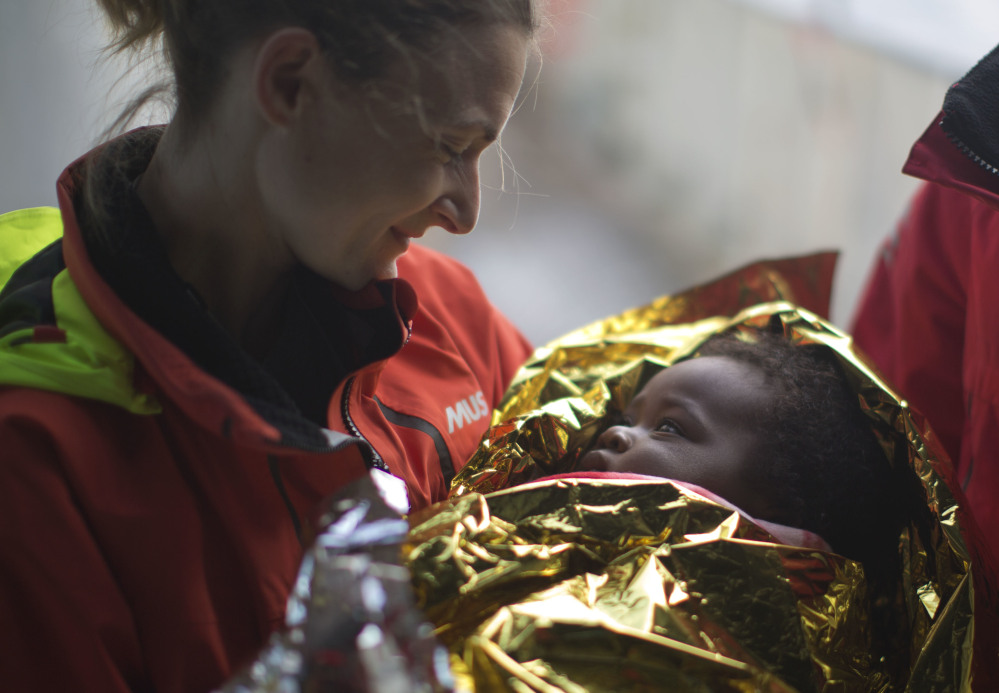VALLETTA, Malta — European Union leaders at a summit Friday devised a plan involving largely lawless Libya to try to shut down the smuggling of hundreds of thousands of migrants from North Africa across the Mediterranean Sea to Europe.
The vast human tide has helped boost anti-Europe populist parties across the continent that have exploited the immigration crisis to gain voters.
But even as EU officials meeting in the Mediterranean island nation of Malta were voicing hopes that the strategy would help stop the loss of thousands of lives yearly when flimsy trafficking boats from Libya flounder or sink, concerns arose that the plan risks seeing thousands of people marooned in inhumane conditions in Libya.
Much of the plan’s success will depend on if Libya can be helped by Europe to deter smugglers from operating along its poorly patrolled coastline. That’s a big unknown, given that the internationally backed Tripoli-based government only controls part of the sprawling country. Libya is beset by rival governments, militias and tribal factions that were unleashed in 2011 after the ouster and slaying of longtime strongman Moammar Gadhafi.
“Naturally, we’re hoping for results,” Italian Premier Paolo Gentiloni said Friday. “There won’t be any miracles, but better management and reduction of illegal migrants are what we’re working toward.”
He said if the plan can cut down on the hundreds of thousands setting off from Libya, it will also reduce the tragedies in which thousands of migrants die every year in the Mediterranean – including at least 5,083 last year.
In the last few years, Italy’s coast guard has coordinated the rescues of hundreds of thousands of asylum-seekers and other migrants who were then brought to safety on Italy’s shores. Most don’t want to stay in Italy but hope to reach families or find potential jobs in Germany or other wealthy northern European countries.
In March, the EU struck a deal with Turkey to stop huge number of Syrians, Iraqis, Afghanis and others heading from Turkish shores toward Greece and then overland toward northern Europe. That arrangement involved EU funds of some $3.5 billion for Turkey, in exchange for that country keeping the migrants within its borders and caring for them.
“The Libyan government doesn’t have the same control as (Turkish President Recep) Erdogan of his territory. We can’t expect the situation will change suddenly” in Libya, Gentiloni cautioned.
Copy the Story LinkSend questions/comments to the editors.



Success. Please wait for the page to reload. If the page does not reload within 5 seconds, please refresh the page.
Enter your email and password to access comments.
Hi, to comment on stories you must . This profile is in addition to your subscription and website login.
Already have a commenting profile? .
Invalid username/password.
Please check your email to confirm and complete your registration.
Only subscribers are eligible to post comments. Please subscribe or login first for digital access. Here’s why.
Use the form below to reset your password. When you've submitted your account email, we will send an email with a reset code.